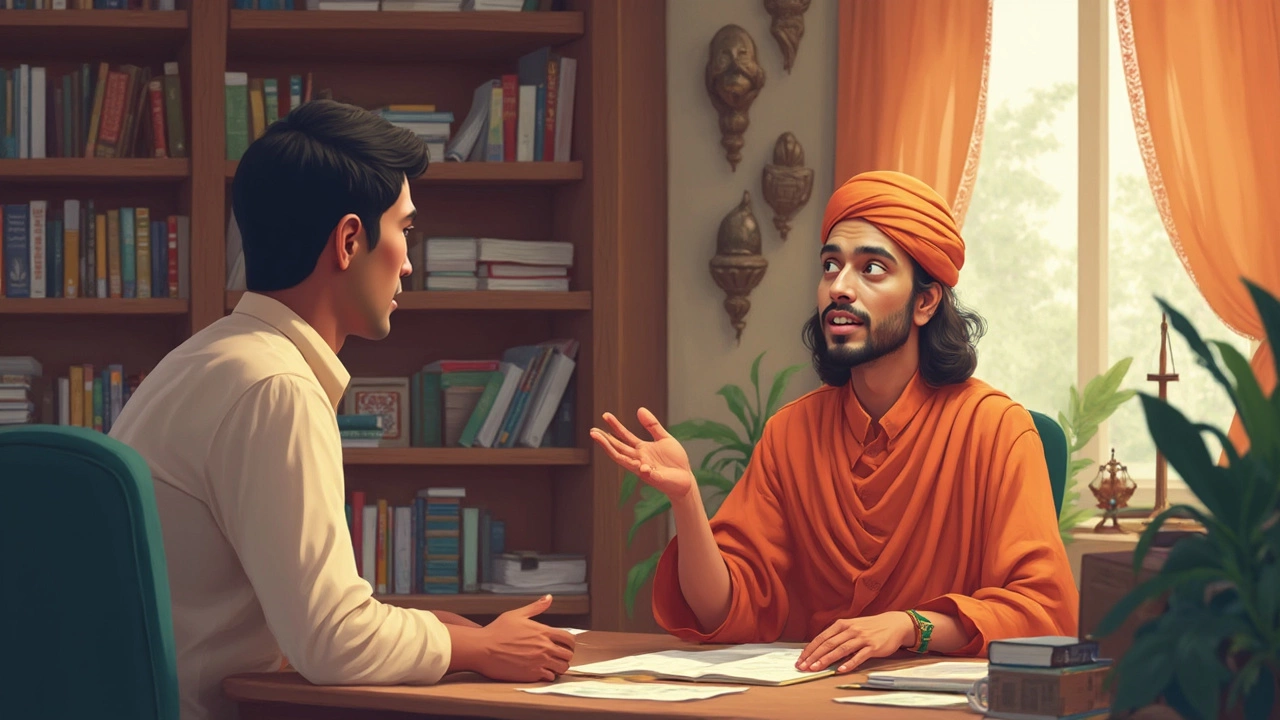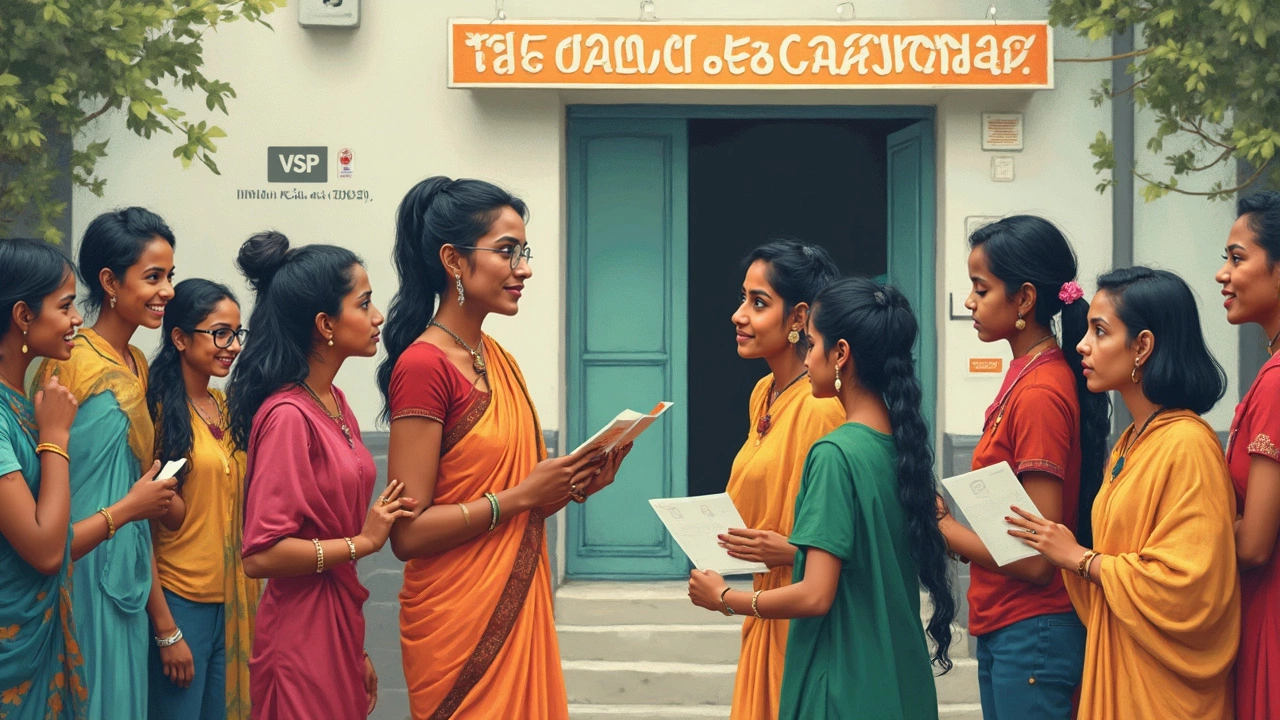Ever wonder if you can get a lawyer for free in the US? It's actually more common than you might think, especially if you're dealing with criminal charges and can't afford to hire one. The legal system doesn't want anyone going through this process alone, right? That's why there are several paths to free legal help, tailored to give everyone a fair shot.
Public defenders are perhaps the most well-known option. These are government-appointed lawyers who step in when someone can't afford a private attorney. Sure, they might seem busy, but they’re passionate about justice and know their stuff. Then there are legal aid societies. They’re a bit like hidden gems, providing help to folks who meet certain income requirements. These organizations can be lifesavers if you’re in a tight spot financially.
- Understanding Free Legal Services
- Public Defenders and How They Work
- Legal Aid Societies: Who They Help
- Pro Bono Services from Private Lawyers
- Tips for Accessing Free Legal Help
Understanding Free Legal Services
Alright, let's break this down. The idea of getting a lawyer without paying might sound a bit too good to be true, but in the US, there are actual pathways for this, especially if you're dealing with tough financial times. So, how does this whole free lawyer thing work? It's all thanks to a constitutional guarantee. The Sixth Amendment ensures that if you're facing criminal charges and can't afford a lawyer, you're not left high and dry.
Okay, but where do these free lawyers come from? One option is public defenders. These lawyers are backed by the government and are there specifically to help folks who can't shell out the cash for private legal help. They’re experienced in the courtroom and focus mainly on criminal cases. Another option comes through legal aid societies. These nonprofit organizations provide free legal services to low-income individuals. Think of them as the frontline fighters for access to justice.
If you're wondering whether you qualify, it often depends on your income level. Generally, if you're below 125% to 200% of the federal poverty guidelines, you're likely eligible. Now, let’s talk about pro bono services. Some private lawyers offer their expertise for free, dedicating a part of their practice to help those in need without charging them a dime. This way, you're still getting top-notch legal advice.
Here's a quick glance at how many people rely on these services:
| Service Type | Approx. Number of Cases Annually |
|---|---|
| Public Defenders | Over 50% of criminal defendants |
| Legal Aid Societies | 1.5 million cases |
| Pro Bono Services | Over 100,000 hours logged annually |
So, even though there are plenty of paid lawyers out there, remember that options like public defenders, legal aid, and pro bono attorneys are making sure justice isn't reserved only for those who can afford it.
Public Defenders and How They Work
Public defenders are like your legal lifeline if you're staring down criminal charges and your wallet is looking a bit empty. In the US, the Constitution guarantees anyone accused of a crime the right to a lawyer. So, if you can't shell out for a private one, the court appoints a free lawyer, also known as a public defender, to have your back.
Now, public defenders aren't just randomly assigned. They work in organized offices within the county or city where you're charged. These folks are genuinely committed to defending those who need it most, ensuring everyone gets a fair chance in court. Sure, they’ve got a lot of cases on their plate, but that just means they really know what they're doing!
Here's how it works: if you qualify for a public defender, typically based on your income level, you'll get assigned one at your first court appearance. The judge will assess your financial situation and decide if you’re eligible for this no-cost help. Pro tip: have all your financial documents ready when you attend your hearing; it speeds up the process.
Once you're paired with a public defender, they're in charge of your defense just like any other lawyer. They'll gather evidence, interview witnesses, and represent you in court. Plus, since they work in the same courthouse community, they often have an insider's view of local procedures and personalities, which can be a huge plus.
Some quick numbers to chew on: in many states, upwards of 80% of criminal defendants rely on public defenders. This means you’re definitely not alone if that's the path you're heading down. It's a crucial service making sure justice isn't reserved just for those who can afford it.

Legal Aid Societies: Who They Help
Legal aid societies are real superheroes when it comes to helping folks who might find themselves in tricky legal spots but can't afford a lawyer. Ever heard of them? These organizations are all about making sure everyone, regardless of their bank balance, can have proper representation. It's like they level the playing field, right?
So, who qualifies for their help? Generally, legal aid societies focus on helping people with low income. They typically look at your income compared to the federal poverty line. If you're earning around 125% or less of the federal poverty level, there's a good chance you're eligible.
These societies don't just cover criminal cases. They might step in for civil issues like housing disputes, family law cases, or even administrative matters. Basically, they're there for life's curveballs that require legal know-how you don't have yourself.
It's wise to know what documents you'll need when applying for aid. Usually, you'll need proof of income like recent pay stubs or a tax return. Additionally, you'll be asked for info about your case—so details about that eviction notice or custody battle should be ready to share.
| Legal Aid Focus Areas | Typical Help Provided |
|---|---|
| Family Law | Divorce, custody agreements, protection orders |
| Housing | Eviction defense, rent disputes |
| Consumer Rights | Debt collection, bankruptcy cases |
If you think a legal aid society sounds like what you need, reaching out to them is the first step. They’re usually listed online by state or region. Trust me, they know all about the system's ins and outs and can be a serious ally when legal trouble looms.
Pro Bono Services from Private Lawyers
You might be surprised to learn that many private attorneys offer their services for free, or pro bono, particularly when it comes to certain criminal cases. These lawyers aren't just doing it for fun or good karma points. There's often a strong sense of giving back to the community and ensuring everyone can get their fair day in court.
Let's break it down. When you're looking for pro bono work, start by checking with your local or state bar association. They usually have directories or programs linking people up with lawyers who are in the pro bono game. Another tip: look for law firms with a solid reputation for community service—many allocate a portion of their time specifically for free cases.
Law schools are also fantastic spots to explore. They often have legal clinics where law students, supervised by experienced lawyers, offer free help. It's like a win-win. You get legal support, and they get practical experience.
Some national organizations are all about providing pro bono services. Groups like the American Bar Association work tirelessly to ensure there's a network of enthusiastic lawyers ready to help. All you need to do is qualify—usually based on your income or the type of case.
- Check local/state bar association for pro bono directories.
- Contact law firms known for community service.
- Explore university law clinics for free assistance.
So when you hear 'free lawyers,' know it's not just a comforting myth. There’s a whole ecosystem of free lawyers out there, working to tip the scales of justice a bit more level.

Tips for Accessing Free Legal Help
Finding free legal help doesn't have to be a wild goose chase. There are smart ways to get the assistance you need without breaking the bank. Here's how you can get started:
- Check Eligibility for Public Defenders: If you're facing criminal charges and can't afford a lawyer, you'll want to see if you qualify for a public defender. Make sure to provide complete financial documents when applying; this is crucial for them to assess your situation accurately.
- Contact Legal Aid Societies: Legal aid societies often fly under the radar, but they're there for folks who meet their income thresholds. Simply find one in your area and reach out. They won't cover every type of case, but if yours fits, you're in for some solid support.
- Explore Pro Bono Opportunities: Certain private criminal lawyers volunteer their time for cases they believe in. It's worth checking with local bar associations or law schools about lawyers taking pro bono cases. A little networking might just open doors.
- Use Online Directories: Sites like Legal Services Corporation or American Bar Association can point you towards free or low-cost legal services. These directories are treasure troves of info if you know where to look.
- Reach Out for Referrals: Sometimes, the best resources come from unexpected places. Ask around—friends, community centers, or even social media. Someone you know might have been through the same and can steer you in the right direction.
Getting legal aid isn't about luck; it's about knowing where to look and how to present your case. Finding the right help can pave the way for your case to move smoother, so don't hesitate to reach out and ask questions.
